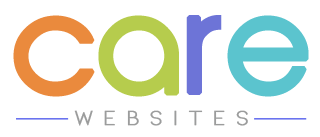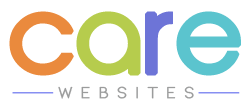Generating quality home healthcare leads requires more than having an online presence. Your website content is key to attracting potential clients. They seek compassionate, professional care at home. The right healthcare marketing strategies can transform your website into a powerful lead generation tool that connects you with families seeking reliable home care services.
Knowing what content your audience likes is key. It helps build trust and turns visitors into clients. From educational resources to client testimonials, each piece of content plays a vital role in your overall home healthcare marketing approach. This guide covers seven proven content types. These types help generate more leads and build trust for your organization in the home healthcare field.
Educational Health Articles and Wellness Guides
Educational content forms the backbone of successful home healthcare lead generation. Families want reliable expert advice on caring for aging parents or managing chronic conditions at home. Writing health articles and wellness guides helps your organization stand out. It shows you are knowledgeable and attracts potential clients.
Focus on topics that address common concerns your target audience faces. Articles on diabetes management at home, fall prevention for older patients, and medication management showcase your expertise. They also offer real value. Write these pieces in simple language. Families should understand them easily. Avoid technical medical terms that could confuse readers.
Well-researched wellness guides can help you rank better in search engines. Topics like nutrition for seniors, home safety changes, and spotting depression in older patients are key. Publishing quality educational content regularly helps search engines see your site as an authority. This uplifts your rankings for home healthcare searches.
Client Success Stories and Testimonials
Nothing builds trust quite like hearing from satisfied clients who have experienced your care firsthand. Client testimonials and success stories serve as powerful social proof that can significantly influence potential clients’ decision-making processes. These authentic accounts provide emotional connection points that statistics and service descriptions simply cannot match.
When developing testimonial content, focus on specific outcomes and improvements in the quality of life. Instead of giving general praise, show how your services helped a client stay independent, recover from surgery, or better manage a chronic condition. Include details about the challenges faced and how your team’s approach made a meaningful difference.
Video testimonials tend to be particularly effective, as they allow viewers to see genuine emotions and hear authentic voices. But, written testimonials with photos can also be compelling when video isn’t workable. Always ensure you have proper consent and consider client privacy preferences when sharing their stories.
Service-Specific Landing Pages
Each home healthcare service you offer deserves its own dedicated landing page optimized for lead generation. Making dedicated pages for your services, such as personal care, skilled nursing, physical therapy, or dementia care, allows clients to easily find what they need. This also improves your search engine optimization.
These pages should clearly explain what each service entails, who can benefit, and what families can expect during the care process. Include relevant keywords naturally throughout the content, such as “home nursing services,” “elderly care help,” or “post-surgical recovery support.” This targeted approach helps your pages rank higher in search results when people look for specific types of care.
Remember to add clear calls to action on every service page. This helps interested visitors contact you for more info or to set up a consultation. Consider adding service-specific contact forms that capture relevant details about the potential client’s needs.
Local Community Resources and Information
Home healthcare is inherently local, making community-focused content extremely valuable for home healthcare lead generation. Creating resources that help families with local healthcare, insurance choices, or extra services shows your strong community knowledge and your dedication to helping local residents.
Create content about local senior centers, support groups, medical facilities, and other resources that improve your services. This could include guides to Medicare options near you, lists of local specialists who visit homes, or details about community programs for seniors and their families.
This content gives real value to your audience. It also shows that your organization is a key part of the local healthcare system. Search engines like local content. It can increase your visibility in location-based searches for home healthcare services.
Caregiver and Family Education Resources
Families often feel overwhelmed when transitioning to home healthcare or when caring for a loved one with complex needs. Offering clear educational resources lowers anxiety and shows your organization as a helpful partner in their journey.
- Guide for the First Home Visit: Learn what will happen and what to expect.
- Preparing Your Home for Care: Get tips on making your space safe and welcoming.
- Questions for Home Healthcare Providers: Know what to ask to find the right fit.
These resources should address both practical concerns and emotional aspects of receiving home care services.
Healthcare Industry News and Updates
Keeping up with healthcare rules, insurance updates, and industry news shows potential clients that your organization is informed and follows the latest standards. Regular blog posts on industry updates help build thought leadership. They also keep your website fresh with new content.
Focus on changes that directly impact home healthcare recipients and their families. This might include updates to Medicare coverage, new safety regulations, or advances in home medical technology. Always explain how these changes impact your clients. Also, share what steps your organization takes to stay compliant and ensure the best care.
Interactive Tools and Assessments
Interactive content pulls in visitors better than static pages. It keeps them on your website longer and gives you useful insights into their needs. Consider creating tools like care needs assessments, cost calculators, or interactive checklists that help families determine what level of home healthcare support might be appropriate.
These tools serve many purposes in your healthcare marketing strategies. They provide immediate value to visitors, collect valuable lead information, and help qualify potential clients based on their responses. A good assessment helps families find the right services. It also gives your team valuable insights into their needs before the first meeting.
Maximizing Your Home Healthcare Content Strategy
Creating effective website content for home healthcare lead generation requires consistent effort and strategic planning. Each piece of content should serve your audience’s needs while supporting your business goals. Regular analysis of which content types generate the most engagement and leads helps refine your approach over time.
The most successful home healthcare marketing strategies combine multiple content types to create a comprehensive resource that addresses every stage of the client journey, from initial awareness through ongoing care relationships.
Transform Your Home Healthcare Website?
At Care Websites, we specialize in creating compelling, conversion-focused websites for home healthcare providers. Our team understands the unique challenges of healthcare marketing and can help you develop a content strategy that attracts more qualified leads while building trust with potential clients.
Contact us today to learn how we can help you implement these proven content strategies and create a website that truly serves your community’s home healthcare needs.
Frequently Asked Questions
Q: How often should I update my home healthcare website content?
A: Aim to publish new content at least 2-3 times per month, with weekly updates being ideal. Regular content updates help maintain search engine rankings and keep your audience engaged. Focus on consistency rather than volume it’s better to publish one high-quality piece monthly than multiple low-quality posts weekly.
Q: What types of keywords should I focus on for home healthcare lead generation?
A: Target a mix of service-specific keywords (like “home nursing care,” “elderly companionship,” “medication management”) and location-based terms (“home healthcare [your city],” “senior care services near me”). Long-tail keywords that reflect how families actually search for care often convert better than broad, competitive terms.
Q: How can I measure the effectiveness of my website content for generating leads?
A: Track metrics like website traffic, time spent on pages, contact form submissions, phone calls, and consultation requests. Use Google Analytics to identify which content pieces drive the most conversions, and monitor your search engine rankings for target keywords. Regular measurement helps you refine your content strategy over time.
Q: Should I include pricing information on my home healthcare website?
A: While specific pricing can be complex due to varying care needs and insurance coverage, providing general pricing ranges or starting costs helps qualify leads and sets appropriate expectations. Consider creating a cost calculator tool or offering pricing guides that visitors can download in exchange for their contact information.
Q: How do I ensure my healthcare content remains compliant with regulations?
A: Stay updated on HIPAA requirements, state healthcare regulations, and advertising guidelines for healthcare providers. Always obtain proper consent before sharing client stories or testimonials, avoid making medical claims you cannot substantiate, and consider having healthcare attorneys review your content strategy to ensure compliance.








